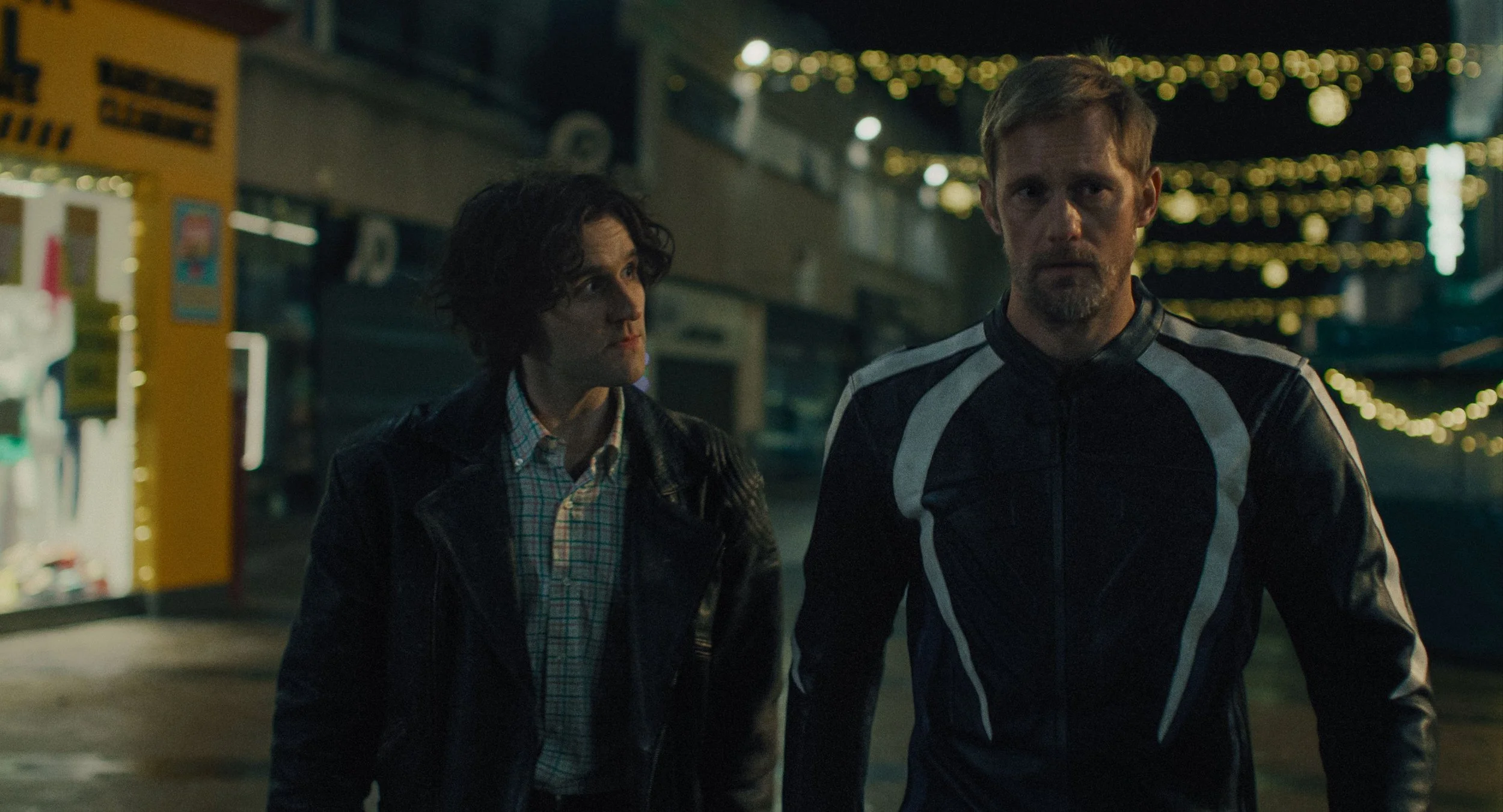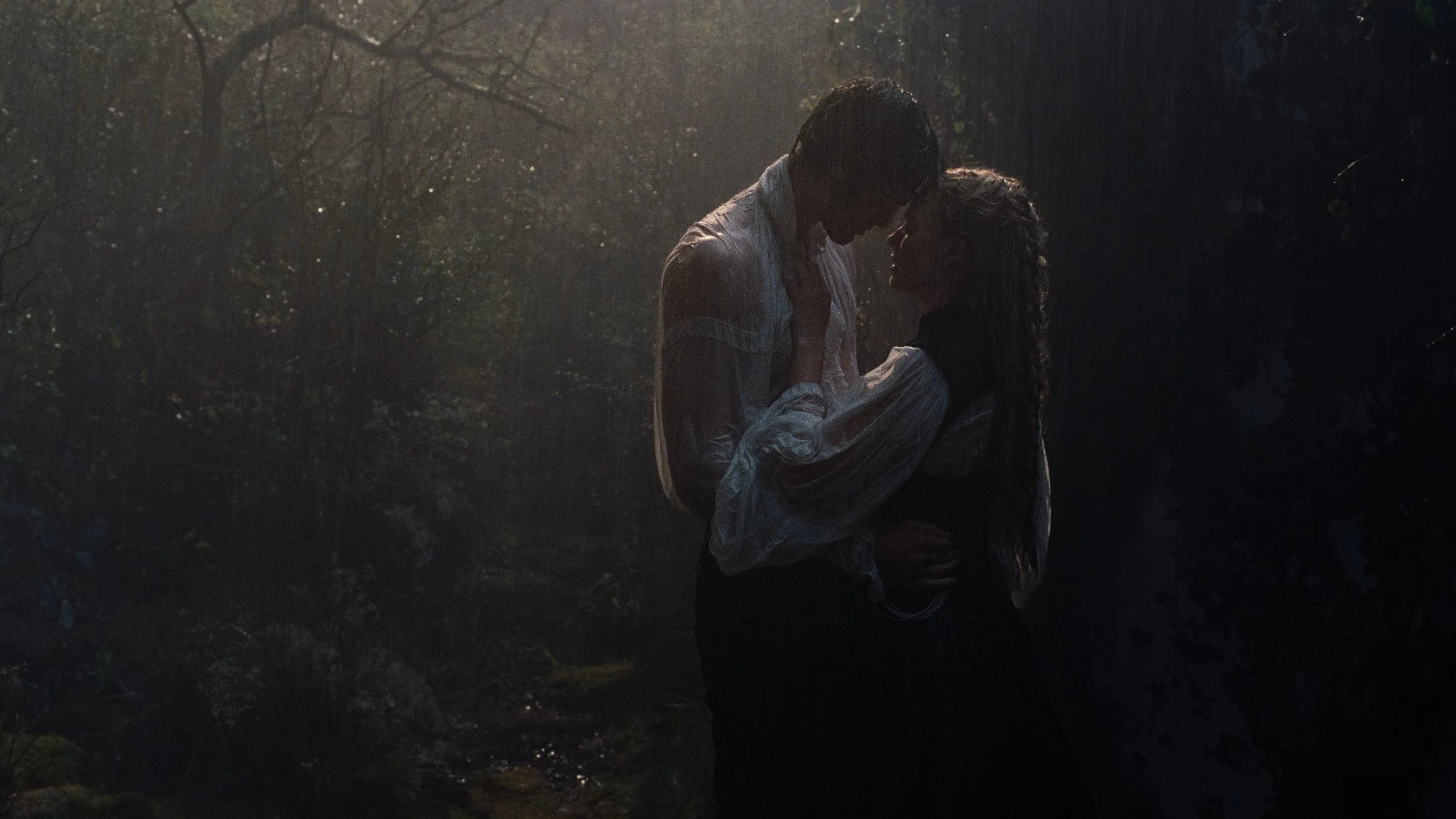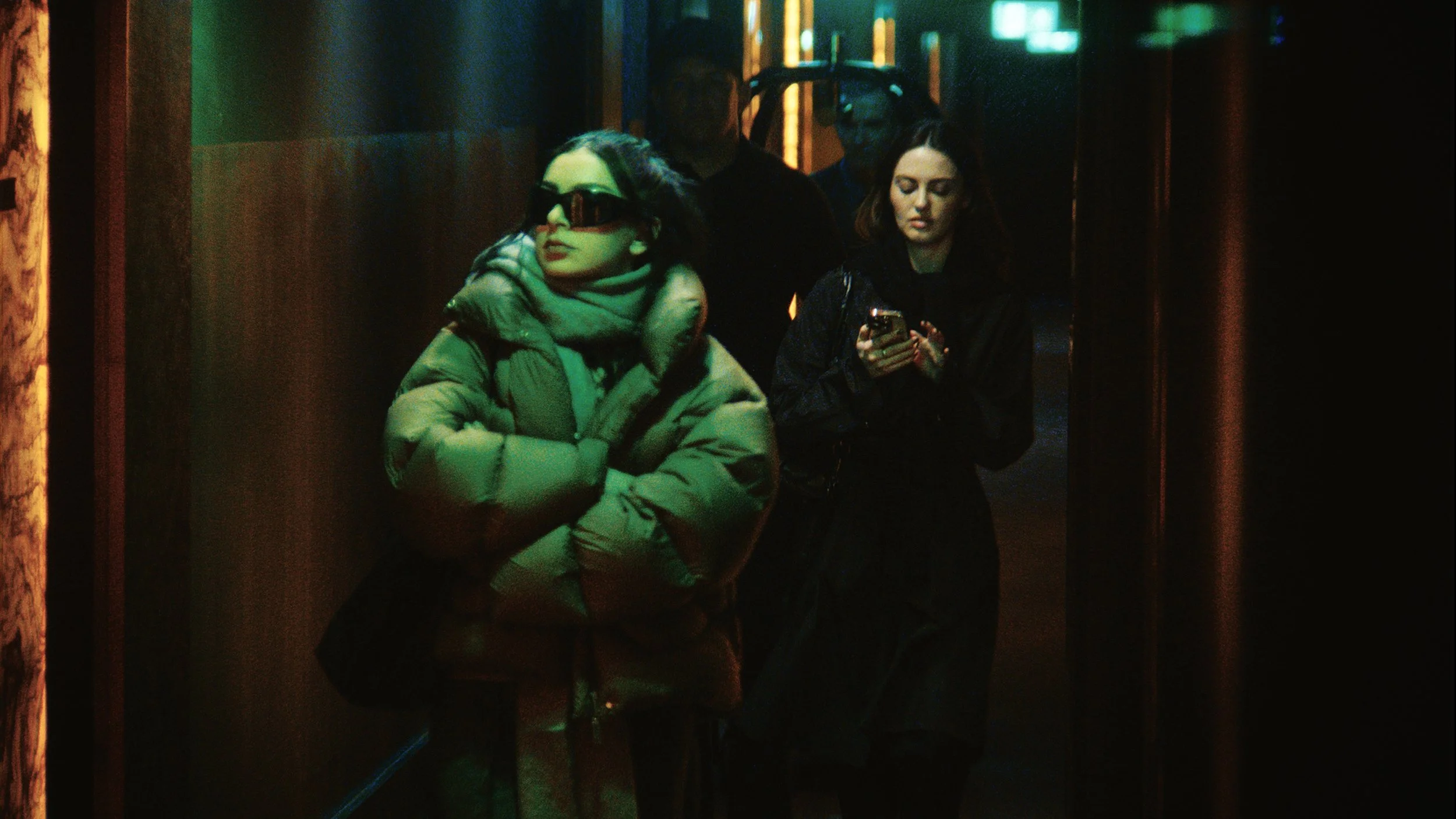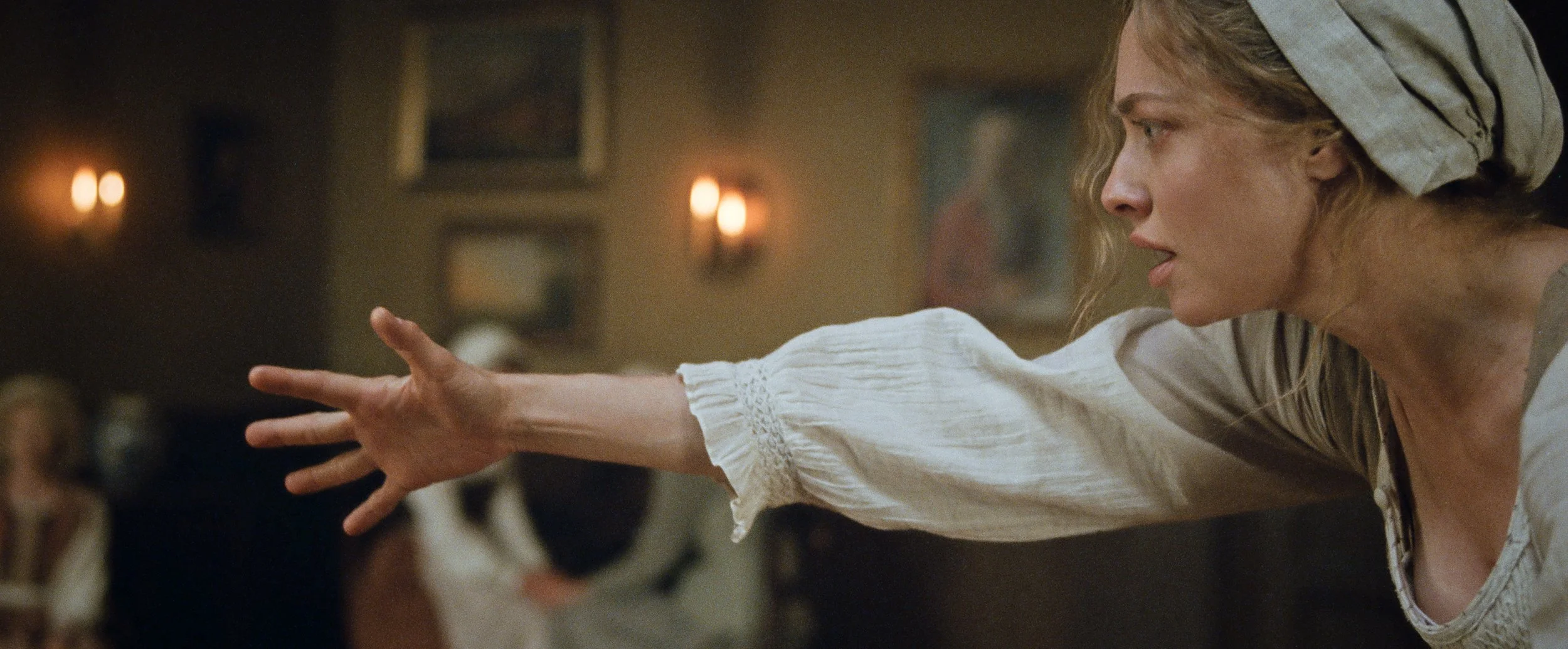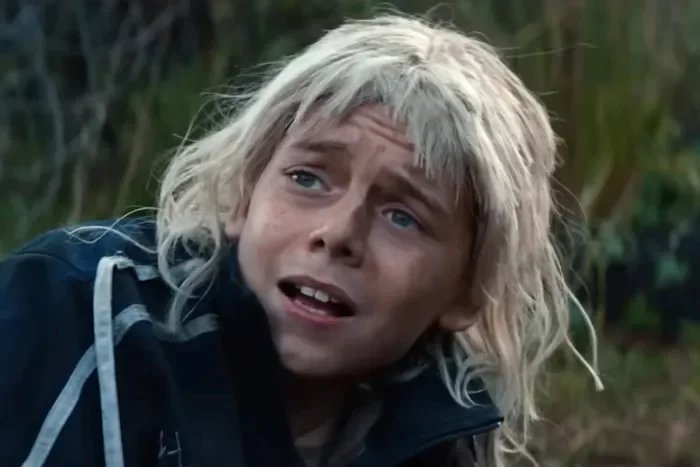Review: 'Pillion' presents the sexual dynamics between a studly biker and his young submissive with an unflinching eye, and finds tender romance beneath the leather surface.
If you’ve heard anything about writer-director Harry Lighton’s bondage-themed drama “Pillion,” you may already know that it’s unflinching in its portrayal of a young man’s sexual exploits as a submissive partner to a dominating motorcycle rider. What you might not latch onto, through the “don’t try this at home” exploration of the BDSM subculture, it’s oddly sweet and romantic.
The young man at the center of Lighton’s adaptation of Adam Mars-Jones’ book “Box Hill,” is Colin (played by Henry Melling), a young man seeking his first gay sexual encounter. He does this with the blessing of his parents, Pete (Douglas Hodge) and Peggy (Lesley Sharp), who even drive him to the bar for his first blind date.
That date doesn’t go anywhere, but at the pub, Colin first encounters Ray (Alexander Skarsgård), an impossibly handsome man in motorcycle leathers. Colin later meets Ray on the street, and Ray guides him through a sexual experience in an alley.
“What am I going to do with you?” Ray asks. “Whatever you want, really,” Colin replies.
Colin finds out how far that answer goes. Ray takes his measurements, and orders Colin is own set of leather ware — and puts a chain with a padlock around his neck, an outer symbol that Colin is Ray’s “property” within this biker group. Colin revels in this role, happily sleeping on the floor while Ray sleeps on the bed. He doesn’t share the details of his relationship with his parents or coworkers, except to say that he has “an aptitude for devotion.”
Lighton is forthright in his depiction of the strong sexual component to this culture — one doesn’t usually see this much butt-baring clothing outside a fetish supply store — but he also leans into the commitment and cooperation inherent in such a dominant/submissive relationship. The movie also digs into the camaraderie of the other submissive’s in Ray’s motorcycle group, and how Colin finds in it a place he can belong.
As magnetic as Skarsgård is as the hunky Ray, it’s Melling as the vulnerable Colin who really shines here. A quarter century from being introduced as Harry Potter’s bullying cousin, Dudley Dursley, Melling has grown into a mature actor, and watching how his Colin presses his leverage within the relationship is downright heart-warming.
“Pillion” isn’t for everyone — the sexual content is too in-your-face for many moviegoers, and makes “Midnight Cowboy” look tame. But it’s a movie that, for an audience who can meet it halfway, delivers a poignant romance under that rough exterior.
——
‘Pillion’
★★★1/2
Opens Friday, February 20, at the Broadway Centre Cinemas (Salt Lake City). Not rated, but likely on the border between R and NC-17 for strong sexuality and suggestions of extreme nudity. Running time: 106 minutes.
